Navigating the process of obtaining a death certificate can feel overwhelming, especially during such a difficult time. Understanding the essential components of a letter for its issuance can simplify the task and lessen some stress. In this article, we'll explore step-by-step how to craft a clear and compassionate letter that fulfills all necessary requirements. Ready to learn how to make this process easier? Let's dive in!
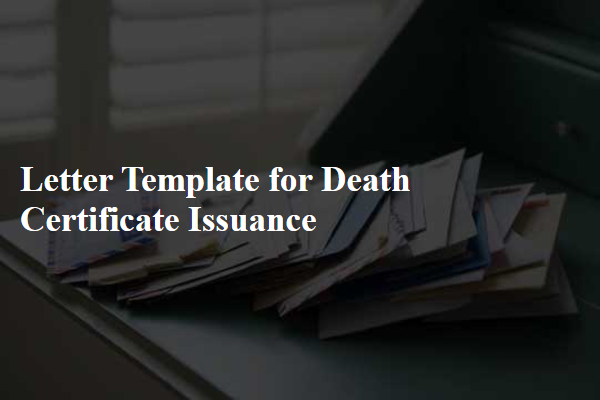
Personal Information of Deceased
The death certificate issuance process requires accurate personal information of the deceased, including full name, date of birth (including year), date of death, place of death (specific hospital or location), gender, and social security number. Address details need to encompass both the residential address at the time of death and previous addresses if applicable. Furthermore, the certificate must include information about the deceased's marital status, occupation, and parents' names, including their birthplaces to establish familial connections. Documenting the cause of death is also essential for legal record-keeping and statistics; this information should come from a licensed medical professional who certifies the death. All details must be gathered to ensure compliance with state requirements for legal documentation purposes.
Requesting Party's Details
The issuance of a death certificate involves a formal request from the requesting party, who must provide crucial information to the relevant authorities. Key details include the full name of the deceased individual, including any known aliases for accurate identification, along with the date of birth and date of death. The location of death, specifying the city and state can assist in locating official records. Next, the relationship of the requesting party to the deceased, whether immediate family such as spouse or child, or legal representative, must be clearly stated. Additional contact information for the requesting party, such as phone number and mailing address, enables authorities to facilitate the processing of the request and any subsequent communications regarding the death certificate issuance. Specific requirements, such as known identification numbers or reference to an obituary, may also be helpful to expedite the issuance process.
Relationship to Deceased
The issuance of a death certificate requires specific documentation to establish the relationship to the deceased individual (such as a family member, spouse, or legal guardian). This certificate serves a crucial role in legal and official processes, including inheritance claims, insurance settlements, and burial arrangements. Government authorities, such as vital records offices, require valid identification documents alongside proof of relationship, which may include marriage certificates, birth certificates, or adoption papers. Recognizing the importance of this document, applications generally necessitate both the requester's identification and information regarding the deceased individual, such as full name, date of birth, and date of death. Timely acquisition of the death certificate is essential for settling the deceased's estate and handling final affairs.
Reason for Request
The issuance of a death certificate is essential for various legal and administrative processes following the passing of an individual. This official document, which includes critical information such as the deceased's full name, date of birth (often indicating age at time of death), date of death, cause of death, and place of death (such as a specific hospital or residence), serves as proof of death required for settling estates, claiming life insurance benefits, and accessing survivor benefits. Additionally, applications for benefits from organizations like the Social Security Administration or veteran affairs often necessitate this document. Obtaining a death certificate can also facilitate the proper closure of personal records and ensure the deceased's wishes are honored.
Contact Information and Signature
Issuing a death certificate requires specific contact information for verification purposes. Individuals must provide their full name, address (including city, state, and ZIP code), and phone number for any follow-up inquiries. Additionally, the requesting party must include their relationship to the deceased. A signature (often required in ink) is essential to authenticate the request and confirm the legitimacy of the claim regarding the death. Important details include the deceased's full name, date of death, and place of death, which need to be clearly stated to facilitate the issuance process.
Letter Template For Death Certificate Issuance Samples
Letter template of request for death certificate issuance due to recent passing.
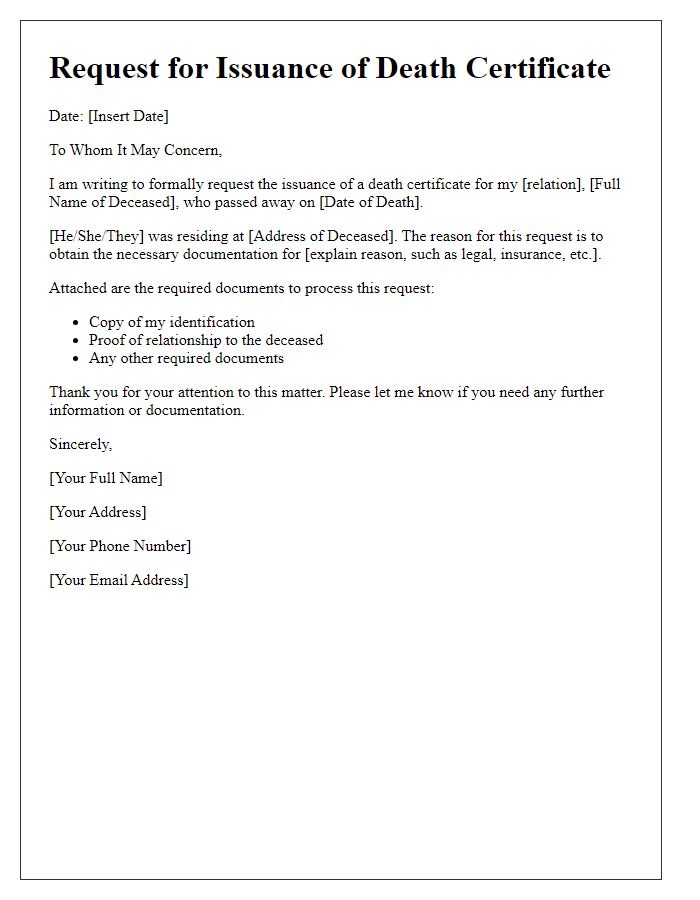
Letter template of application for a death certificate for estate settlement purposes.
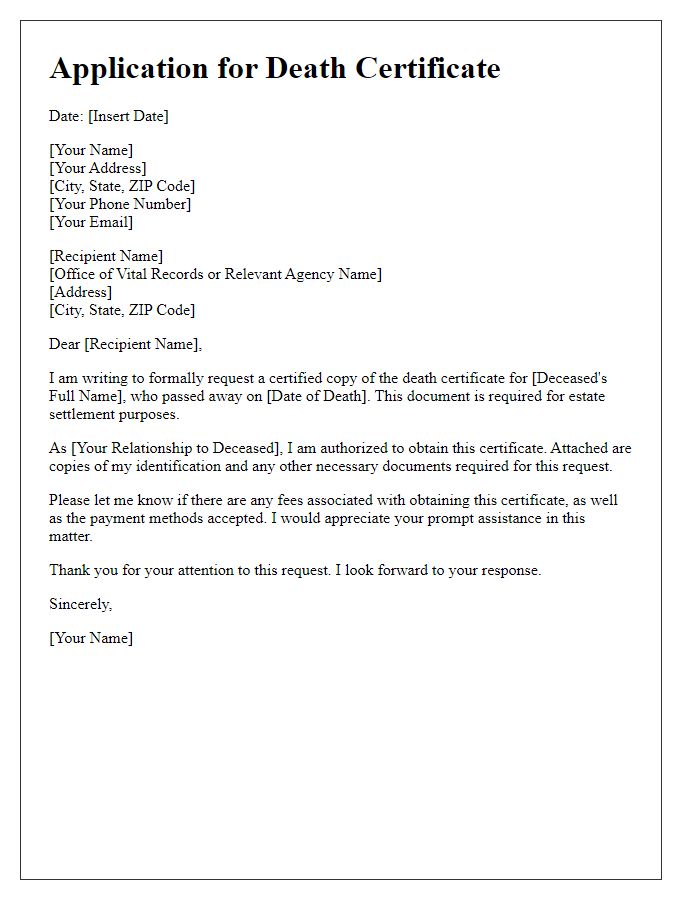
Letter template of inquiry about death certificate issuance for funeral arrangements.
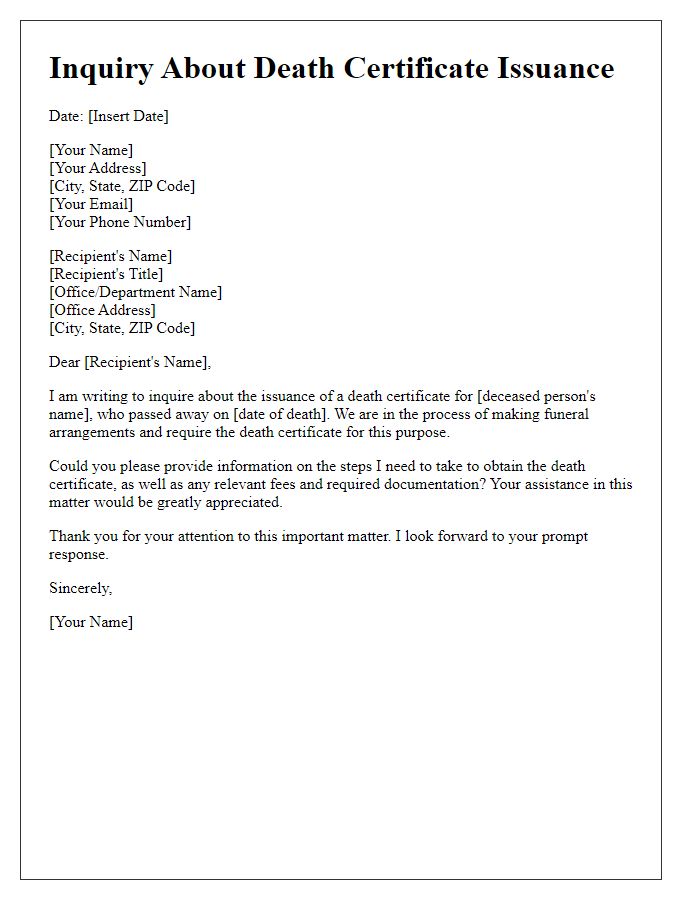
Letter template of formal request for a death certificate for legal verification.
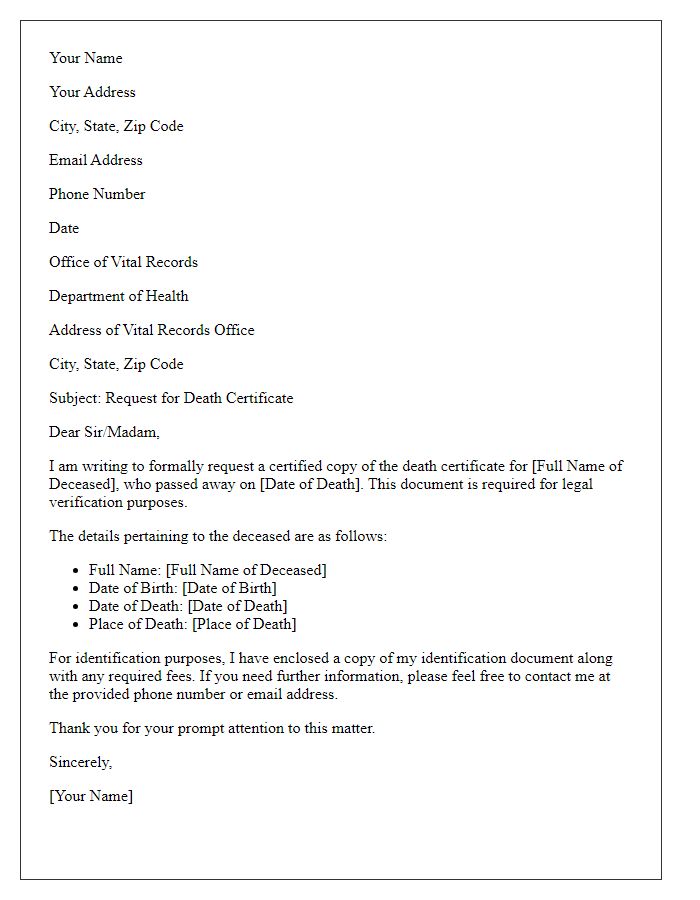
Letter template of appeal for expedited death certificate issuance for insurance claims.
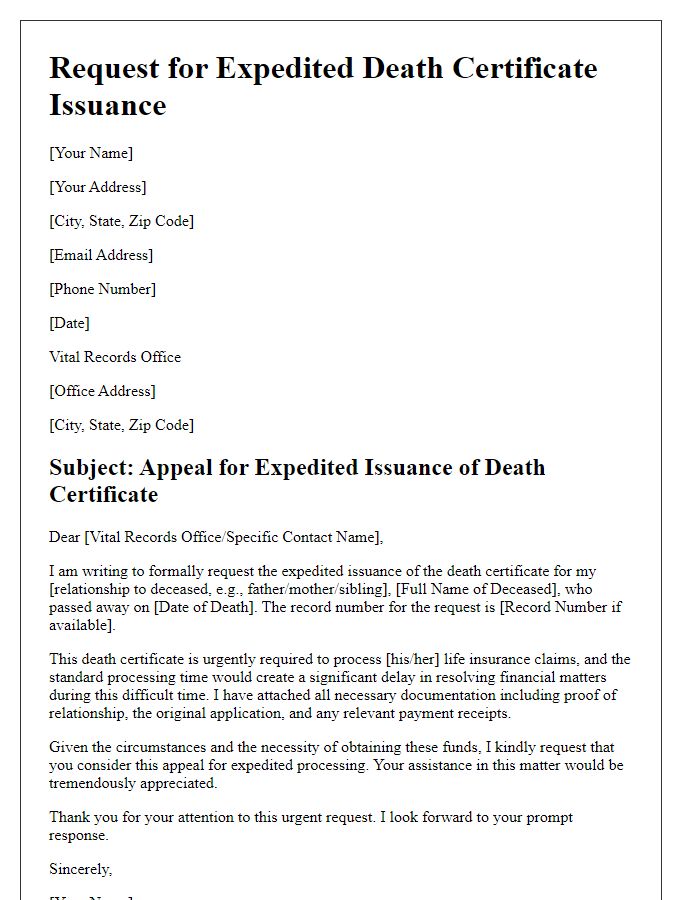
Letter template of notification for death certificate issuance for public records.
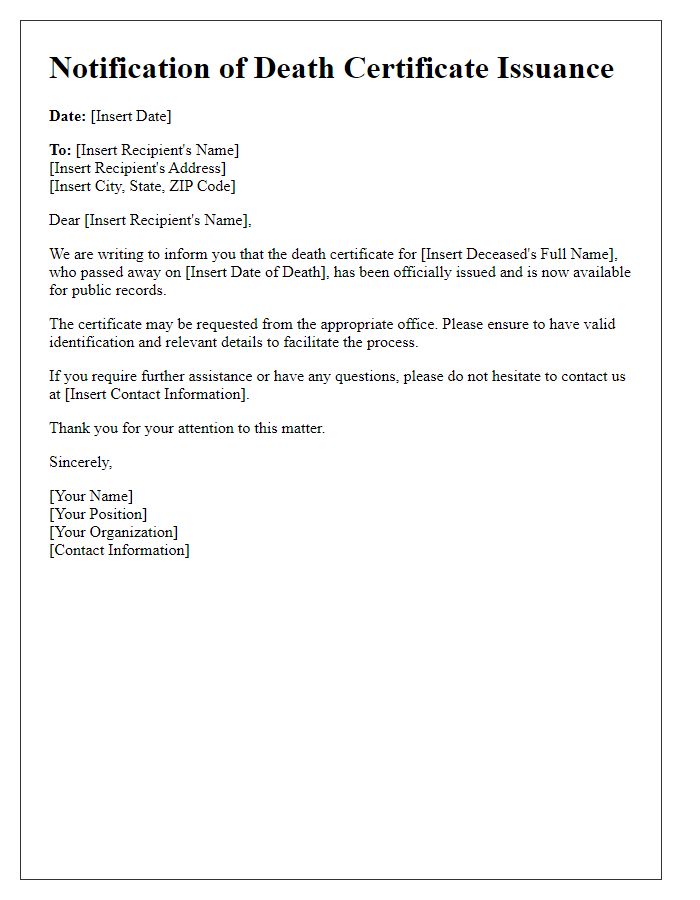
Letter template of petition for death certificate for genealogy research.
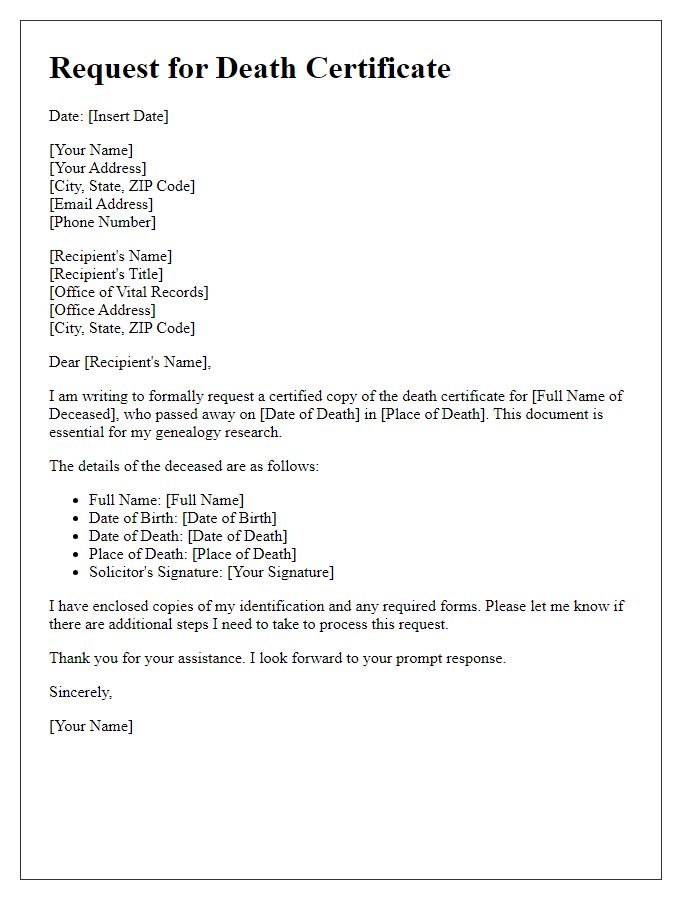
Letter template of request for duplicate death certificate for family records.
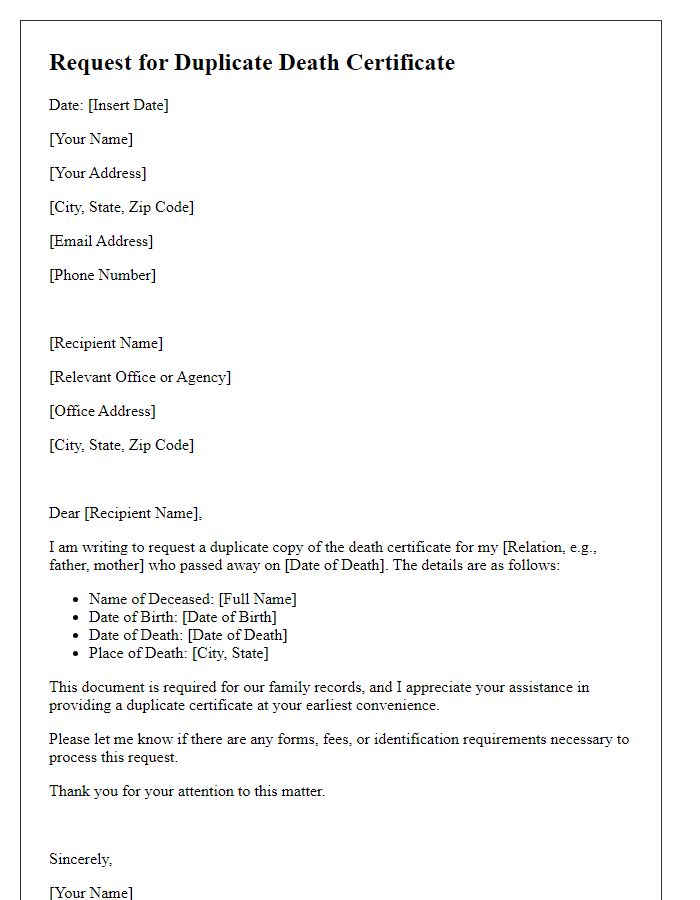
Letter template of inquiry regarding death certificate issuance for immigration purposes.
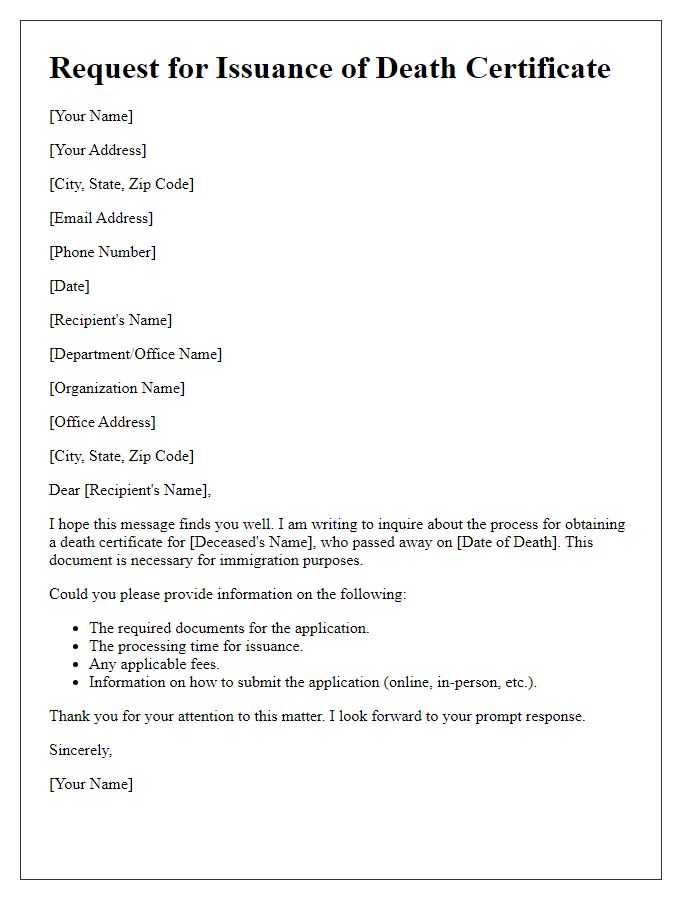

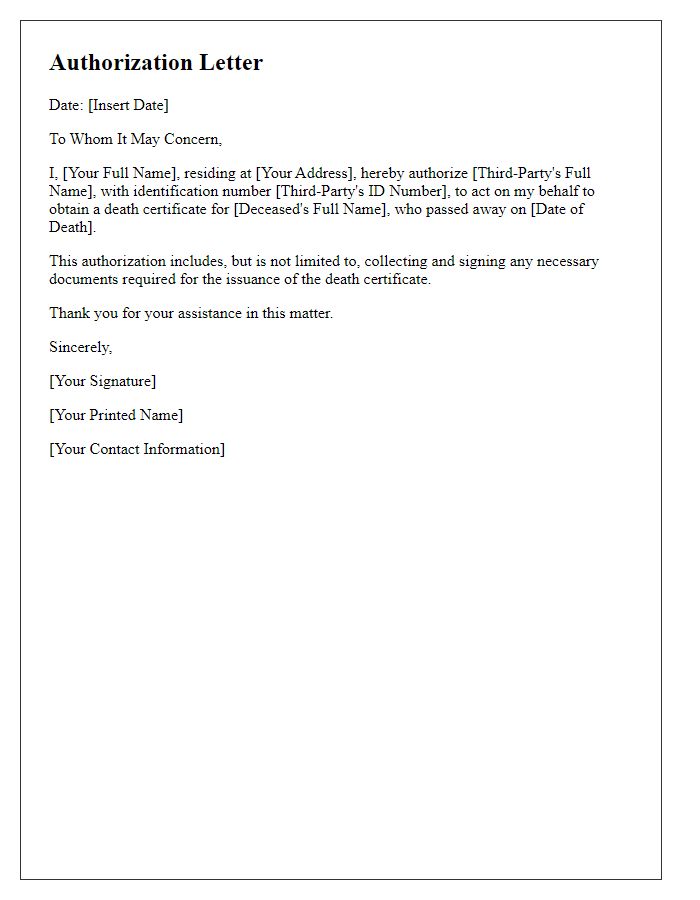

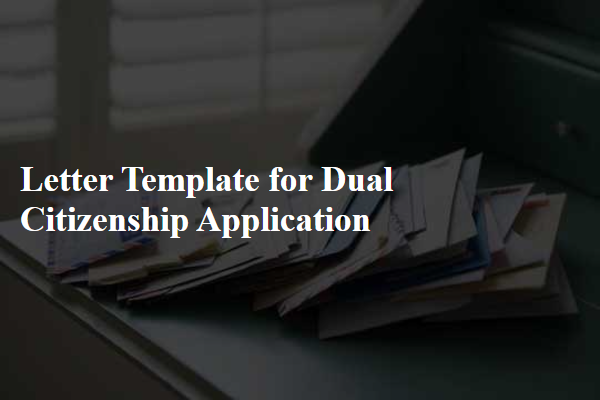
Comments